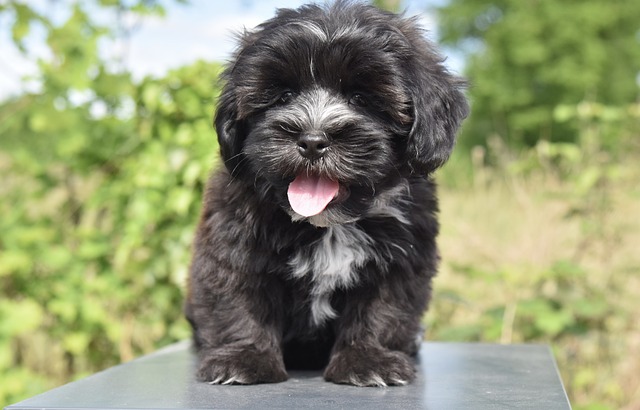
How can I tell if my dog's heatstroke is serious
Let’s be real: It’s a sticky August morning in Los Angeles, and you took your 2-year-old Golden Retriever, Max, for a walk a little later than usual
There’s something magical about Bichons Frisés—those fluffy white balls of energy with eyes that seem to sparkle with mischief. If you’ve fallen for one of these little dogs, you might find yourself curious: is my Bichon truly purebred? It’s a common question, and while purity doesn’t change how much you love them, knowing can satisfy that nagging curiosity.
Start with their looks—Bichons have a distinct appearance that’s hard to miss. Their coats are their most iconic feature: pure white (sometimes with a hint of cream), soft and curly, not straight or wiry. Run your fingers through it; it should feel like cotton, not coarse. They’re small dogs, usually weighing between 12 to 18 pounds, with a compact, sturdy build—no too-long legs or a body that looks stretched out. Their faces are round, with dark, expressive eyes that sit wide apart, and a black nose that contrasts sharply with their white fur. If your pup checks most of these boxes, that’s a good sign.
Then there’s the paperwork. A purebred Bichon often comes with a pedigree certificate from a recognized kennel club, tracing their lineage back several generations. Breeders who specialize in Bichons will usually provide this, along with health records. If you adopted your dog from a shelter or rescue, papers might be hard to come by, but that doesn’t mean they’re not purebred—many loving Bichons end up in shelters without their paperwork. Just be wary of breeders who can’t provide any documentation; reputable ones know how important that trust is.
 Behavior can also offer clues. Bichons are known for their playful, affectionate nature—they thrive on human attention and love being part of the family. They’re generally friendly with kids and other pets, though they can be a bit stubborn when training (those big eyes are great for getting their way). If your dog is energetic, loves to bounce around, and greets everyone like a long-lost friend, that lines up with the breed’s typical personality. Of course, every dog is unique, but these traits often shine through in purebred Bichons.
Behavior can also offer clues. Bichons are known for their playful, affectionate nature—they thrive on human attention and love being part of the family. They’re generally friendly with kids and other pets, though they can be a bit stubborn when training (those big eyes are great for getting their way). If your dog is energetic, loves to bounce around, and greets everyone like a long-lost friend, that lines up with the breed’s typical personality. Of course, every dog is unique, but these traits often shine through in purebred Bichons.
It’s worth remembering that mixed breeds can have Bichon-like features too. A poodle mix, for example, might have a similar coat, but their body shape or size could give them away. If you’re really unsure, a DNA test can clear things up. These tests, widely available at pet stores or online, analyze your dog’s genes and can tell you which breeds make up their background. They’re not perfect, but they’re a helpful tool—just make sure to follow any local guidelines about pet testing if required.
Whether your Bichon is purebred or not, what matters most is the bond you share. They’ll still curl up in your lap, chase their tail when excited, and shower you with kisses just the same. But if that curiosity lingers, checking their appearance, asking about paperwork, or even a DNA test can help. After all, understanding your little fluffy companion a bit better only deepens that special connection you share.

Let’s be real: It’s a sticky August morning in Los Angeles, and you took your 2-year-old Golden Retriever, Max, for a walk a little later than usual

You're enjoying a summer afternoon at the park when you notice your dog has stopped panting and appears disoriented - their gums are bright red

Let’s paint the picture: You’re in your Denver apartment, watching your 4-year-old Boston Terrier, Ruby, plop down mid-play session with her favorite toy

Many dog owners notice their pets nails seem shorter after regular walks,but how much does this daily activity actually help?The answer depends on where you walk—concrete sidewalks or asphalt streets gently file nails as a dog's paws hit the ground

Most dog owners notice their pup scooting across the carpet at some point, but few connect it to impacted anal glands. These small sacs near a dog’s rectum secrete a scent for marking territory

Most vets agree that regular dog teeth cleaning is key to avoiding painful dental issues later. For healthy adult dogs, a professional cleaning at the vet’s office every 12 to 18 months usually works well.